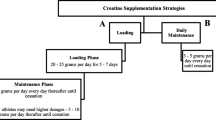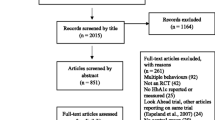Abstract
Purpose
Adequate dietary protein intake is required to postpone and treat sarcopenia in elderly people. Insight into dietary protein intake in this heterogeneous population segment is needed to locate dietary inadequacies and to identify target populations and feeding strategies for dietary interventions. Therefore, we assessed dietary protein intake, distribution of protein intake throughout the day, and the use of protein-containing food sources in community-dwelling, frail, and institutionalized elderly people in the Netherlands.
Methods
Secondary analyses were carried out using dietary data collected from studies among community-dwelling, frail, and institutionalized elderly people to evaluate protein intake characteristics.
Results
Dietary protein intake averaged 1.1 ± 0.3 g/kg-bw/day in community-dwelling, 1.0 ± 0.3 g/kg-bw/day in frail, and 0.8 ± 0.3 g/kg-bw/day in institutionalized elderly men. Similar protein intakes were found in women. Ten percent of the community-dwelling and frail elderly and 35% of the institutionalized elderly people showed a protein intake below the estimated average requirement (0.7 g/kg-bw/day). Protein intake was particularly low at breakfast in community-dwelling (10 ± 10 g), frail (8 ± 5 g), and institutionalized elderly people (12 ± 6 g) with bread and dairy products as predominant protein sources.
Conclusions
Whereas daily protein intake is generally well above the recommended dietary allowance in community-dwelling and frail elderly people, a significant proportion of institutionalized elderly showed an intake below the current protein requirement, making them an important target population for dietary interventions. Particularly at breakfast, there is scope for improving protein intake.

Similar content being viewed by others
References
Abellan van Kan G, Rolland Y, Andrieu S, Bauer J, Beauchet O, Bonnefoy M, Cesari M, Donini LM, Gillette Guyonnet S, Inzitari M, Nourhashemi F, Onder G, Ritz P, Salva A, Visser M, Vellas B (2009) Gait speed at usual pace as a predictor of adverse outcomes in community-dwelling older people an International Academy on Nutrition and Aging (IANA) Task Force. J Nutr Health Aging 13:881–889
Arnal MA, Mosoni L, Boirie Y, Houlier ML, Morin L, Verdier E, Ritz P, Antoine JM, Prugnaud J, Beaufrere B, Mirand PP (1999) Protein pulse feeding improves protein retention in elderly women. Am J Clin Nutr 69:1202–1208
Baumgartner RN, Koehler KM, Gallagher D, Romero L, Heymsfield SB, Ross RR, Garry PJ, Lindeman RD (1998) Epidemiology of sarcopenia among the elderly in New Mexico. Am J Epidemiol 147:755–763
Boirie Y, Dangin M, Gachon P, Vasson MP, Maubois JL, Beaufrere B (1997) Slow and fast dietary proteins differently modulate postprandial protein accretion. Proc Natl Acad Sci U S A 94:14930–14935
Borsheim E, Bui QU, Tissier S, Kobayashi H, Ferrando AA, Wolfe RR (2008) Effect of amino acid supplementation on muscle mass, strength and physical function in elderly. Clin Nutr 27:189–195
Campbell WW, Crim MC, Dallal GE, Young VR, Evans WJ (1994) Increased protein requirements in elderly people: new data and retrospective reassessments. Am J Clin Nutr 60:501–509
Campbell WW, Trappe TA, Wolfe RR, Evans WJ (2001) The recommended dietary allowance for protein may not be adequate for older people to maintain skeletal muscle. J Gerontol A Biol Sci Med Sci 56:M373–M380
Chin APMJ, de Groot LC, van Gend SV, Schoterman MH, Schouten EG, Schroll M, van Staveren WA (2003) Inactivity and weight loss: effective criteria to identify frailty. J Nutr Health Aging 7:55–60
Chin APMJ, de Jong N, Schouten EG, van Staveren WA, Kok FJ (2002) Physical exercise or micronutrient supplementation for the wellbeing of the frail elderly? A randomised controlled trial. Br J Sports Med 36:126–131
Consultation JWFUE (2007) Protein and amino acid requirements in human nutrition. World Health Organ Tech Rep Ser:1-265, back cover
de Jong N, Chin APMJ, de Graaf C, van Staveren WA (2000) Effect of dietary supplements and physical exercise on sensory perception, appetite, dietary intake and body weight in frail elderly subjects. Br J Nutr 83:605–613
de Lauzon B, Volatier JL, Martin A (2004) A Monte Carlo simulation to validate the EAR cut-point method for assessing the prevalence of nutrient inadequacy at the population level. Public Health Nutr 7:893–900
Fiatarone MA, O’Neill EF, Ryan ND, Clements KM, Solares GR, Nelson ME, Roberts SB, Kehayias JJ, Lipsitz LA, Evans WJ (1994) Exercise training and nutritional supplementation for physical frailty in very elderly people. N Engl J Med 330:1769–1775
Folstein MF, Folstein SE, McHugh PR (1975) “Mini-mental state”. A practical method for grading the cognitive state of patients for the clinician. J Psychiatr Res 12:189–198
Fried LP, Tangen CM, Walston J, Newman AB, Hirsch C, Gottdiener J, Seeman T, Tracy R, Kop WJ, Burke G, McBurnie MA (2001) Frailty in older adults: evidence for a phenotype. J Gerontol A Biol Sci Med Sci 56:M146–M156
Haub MD, Wells AM, Tarnopolsky MA, Campbell WW (2002) Effect of protein source on resistive-training-induced changes in body composition and muscle size in older men. Am J Clin Nutr 76:511–517
Houston DK, Nicklas BJ, Ding J, Harris TB, Tylavsky FA, Newman AB, Lee JS, Sahyoun NR, Visser M, Kritchevsky SB (2008) Dietary protein intake is associated with lean mass change in older, community-dwelling adults: the Health, Aging, and Body Composition (Health ABC) Study. Am J Clin Nutr 87:150–155
Hulshof KF, Brussaard JH, Kruizinga AG, Telman J, Lowik MR (2003) Socio-economic status, dietary intake and 10 y trends: the Dutch National Food Consumption Survey. Eur J Clin Nutr 57:128–137
Katsanos CS, Kobayashi H, Sheffield-Moore M, Aarsland A, Wolfe RR (2005) Aging is associated with diminished accretion of muscle proteins after the ingestion of a small bolus of essential amino acids. Am J Clin Nutr 82:1065–1073
Kim JS, Wilson JM, Lee SR (2010) Dietary implications on mechanisms of sarcopenia: roles of protein, amino acids and antioxidants. J Nut Biochem 21:1–13
Koopman R, Crombach N, Gijsen AP, Walrand S, Fauquant J, Kies AK, Lemosquet S, Saris WH, Boirie Y, van Loon LJ (2009) Ingestion of a protein hydrolysate is accompanied by an accelerated in vivo digestion and absorption rate when compared with its intact protein. Am J Clin Nutr 90:106–115
Koopman R, Van Loon LJC (2009) Aging, exercise, and muscle protein metabolism. J Appl Physiol 106:2040–2048
Koopman R, Verdijk L, Manders RJ, Gijsen AP, Gorselink M, Pijpers E, Wagenmakers AJ, van Loon LJ (2006) Co-ingestion of protein and leucine stimulates muscle protein synthesis rates to the same extent in young and elderly lean men. Am J Clin Nutr 84:623–632
Koopman R, Walrand S, Beelen M, Gijsen AP, Kies AK, Boirie Y, Saris WH, van Loon LJ (2009) Dietary protein digestion and absorption rates and the subsequent postprandial muscle protein synthetic response do not differ between young and elderly men. J Nutr 139:1707–1713
Luhrmann PM, Herbert BM, Gaster C, Neuhauser-Berthold M (1999) Validation of a self-administered 3-day estimated dietary record for use in the elderly. Eur J Nutr 38:235–240
Mahoney FI, Barthel DW (1965) Functional evaluation: The Barthel index. Md State Med J 14:61–65
Manders M, de Groot CP, Blauw YH, Dhonukshe-Rutten RA, van Hoeckel-Prust L, Bindels JG, Siebelink E, van Staveren WA (2009) Effect of a nutrient-enriched drink on dietary intake and nutritional status in institutionalised elderly. Eur J Clin Nutr 63:1241–1250
Mohs RC, Rosen WG, Davis KL (1983) The Alzheimer’s disease assessment scale: an instrument for assessing treatment efficacy. Psychopharmacol Bull 19:448–450
Moore DR, Robinson MJ, Fry JL, Tang JE, Glover EI, Wilkinson SB, Prior T, Tarnopolsky MA, Phillips SM (2009) Ingested protein dose response of muscle and albumin protein synthesis after resistance exercise in young men. Am J Clin Nutr 89:161–168
Nijs KA, de Graaf C, Siebelink E, Blauw YH, Vanneste V, Kok FJ, van Staveren WA (2006) Effect of family-style meals on energy intake and risk of malnutrition in dutch nursing home residents: a randomized controlled trial. J Gerontol A Biol Sci Med Sci 61:935–942
Paddon-Jones D, Rasmussen BB (2009) Dietary protein recommendations and the prevention of sarcopenia. Curr Opin Clin Nutr Metab Care 12:86–90
Paddon-Jones D, Sheffield-Moore M, Katsanos CS, Zhang XJ, Wolfe RR (2006) Differential stimulation of muscle protein synthesis in elderly humans following isocaloric ingestion of amino acids or whey protein. Exp Gerontol 41:215–219
Paddon-Jones D, Sheffield-Moore M, Zhang XJ, Volpi E, Wolf SE, Aarsland A, Ferrando AA, Wolfe RR (2004) Amino acid ingestion improves muscle protein synthesis in the young and elderly. Am J Physiol Endocrinol Metab 286:E321–E328
Paddon-Jones D, Short KR, Campbell WW, Volpi E, Wolfe RR (2008) Role of dietary protein in the sarcopenia of aging. Am J Clin Nutr 87:1562S–1566S
Pannemans DL, Wagenmakers AJ, Westerterp KR, Schaafsma G, Halliday D (1998) Effect of protein source and quantity on protein metabolism in elderly women. Am J Clin Nutr 68:1228–1235
Persson M, Elmstahl S, Westerterp KR (2000) Validation of a dietary record routine in geriatric patients using doubly labelled water. Eur J Clin Nutr 54:789–796
Rolland Y, Czerwinski S, Abellan Van Kan G, Morley JE, Cesari M, Onder G, Woo J, Baumgartner R, Pillard F, Boirie Y, Chumlea WM, Vellas B (2008) Sarcopenia: its assessment, etiology, pathogenesis, consequences and future perspectives. J Nutr Health Aging 12:433–450
Rosen WG, Mohs RC, Davis KL (1984) A new rating scale for Alzheimer’s disease. Am J Psychiatry 141:1356–1364
Rosendahl E, Lindelof N, Littbrand H, Yifter-Lindgren E, Lundin-Olsson L, Haglin L, Gustafson Y, Nyberg L (2006) High-intensity functional exercise program and protein-enriched energy supplement for older persons dependent in activities of daily living: a randomised controlled trial. Aust J Physiother 52:105–113
Schuit AJ, Schouten EG, Westerterp KR, Saris WH (1997) Validity of the Physical Activity Scale for the Elderly (PASE): according to energy expenditure assessed by the doubly labeled water method. J Clin Epidemiol 50:541–546
Solerte SB, Gazzaruso C, Bonacasa R, Rondanelli M, Zamboni M, Basso C, Locatelli E, Schifino N, Giustina A, Fioravanti M (2008) Nutritional supplements with oral amino acid mixtures increases whole-body lean mass and insulin sensitivity in elderly subjects with sarcopenia. Am J Cardiol 101:69E–77E
Verdijk LB, Jonkers RA, Gleeson BG, Beelen M, Meijer K, Savelberg HH, Wodzig WK, Dendale P, van Loon LJ (2009) Protein supplementation before and after exercise does not further augment skeletal muscle hypertrophy after resistance training in elderly men. Am J Clin Nutr 89:608–616
Verhoeven S, Vanschoonbeek K, Verdijk LB, Koopman R, Wodzig WKWH, Dendale P, Van Loon LJC (2009) Long-term leucine supplementation does not increase muscle mass or strength in healthy elderly men. Am J Clin Nutr 89:1468–1475
Washburn RA, Smith KW, Jette AM, Janney CA (1993) The physical activity scale for the elderly (PASE): development and evaluation. J Clin Epidemiol 46:153–162
Wolfe RR, Miller SL (2008) The recommended dietary allowance of protein: a misunderstood concept. JAMA 299:2891–2893
Acknowledgments
We acknowledge N. De Jong and M. Chinapaw for using the data of the FRAIL study. We also thank M. Manders and K. Nijs for the data of the INST-1 and INST-2 study, respectively.
Author information
Authors and Affiliations
Corresponding author
Rights and permissions
About this article
Cite this article
Tieland, M., Borgonjen-Van den Berg, K.J., van Loon, L.J.C. et al. Dietary protein intake in community-dwelling, frail, and institutionalized elderly people: scope for improvement. Eur J Nutr 51, 173–179 (2012). https://doi.org/10.1007/s00394-011-0203-6
Received:
Accepted:
Published:
Issue Date:
DOI: https://doi.org/10.1007/s00394-011-0203-6




